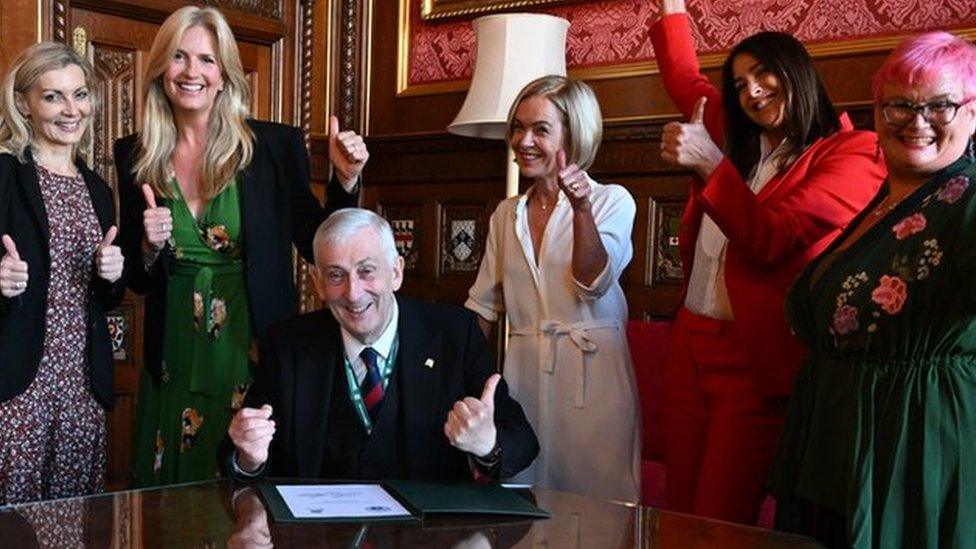Women with menopause could get paid time off under Labour plan
- Published

Symptoms of menopause include memory problems, hot flushes and depression
Women going through the menopause could be offered paid time off and uniform changes under Labour plans to support women in the workplace.
The party wants to require larger companies to set out menopausal action plans detailing how they are supporting women with menopause at work.
Last year a survey found one in 10 women left their jobs due to menopausal symptoms.
The government says is it working with the NHS to improve menopause care.
But Labour says the Conservative government has "vacated the field" on supporting women with menopause in the workplace.
Under a policy unveiled on Tuesday, Labour will require large firms to publish and implement menopause action plans, if the party wins the next general election.
The action plans could include policies such as paid time off, uniform alterations and temperature-controlled areas in offices to help women manage menopausal symptoms.
Employers will be required to submit their action plans to an existing government portal used for reporting on the gender pay gap.
Labour Deputy Leader Angela Rayner said the policy was a "simple and effective way" to "improve productivity, keep more people in work and ultimately grow our economy for all".
Ms Rayner said under the Conservatives, "the number of women leaving the workforce is skyrocketing, and productivity is plummeting".
Labour highlighted the findings from the survey of more than 4,000 menopausal women aged 45-55.
The research, which was featured in a Channel 4 documentary last year, found that 14% of women had reduced their hours at work, 14% had gone part-time, and 8% had not applied for promotion.
WATCH: Menopause made me think I had a brain tumour or Alzheimer's - Davina McCall
Last month, the government rejected a proposal from MPs to introduce "menopause leave" pilots in England, arguing it could be "counterproductive".
The suggestion came from the Women and Equalities Committee, which accused ministers of making "glacial progress" on menopause support.
In July 2022, the committee published a report, external which warned that the impact of menopause was causing the UK economy to "haemorrhage talent".
It said a lack of support was pushing women out of work and made 12 recommendations aimed at giving working women more rights.
The government has defended its record of supporting women through the menopause, with a spokesperson arguing it had "put women's health at the top of the agenda as part of the first-ever women's health strategy for England".
"We are implementing an ambitious programme of work with the NHS to improve menopause care so all women can access the support they need," the spokesperson said.
"We encourage employers to be compassionate and flexible to the needs of their employees, and are committed to supporting more flexible working patterns - having consulted on making flexible working the default unless employers have good reasons not to."
Related topics
- Published13 June 2022

- Published28 July 2022

- Published7 November 2024
